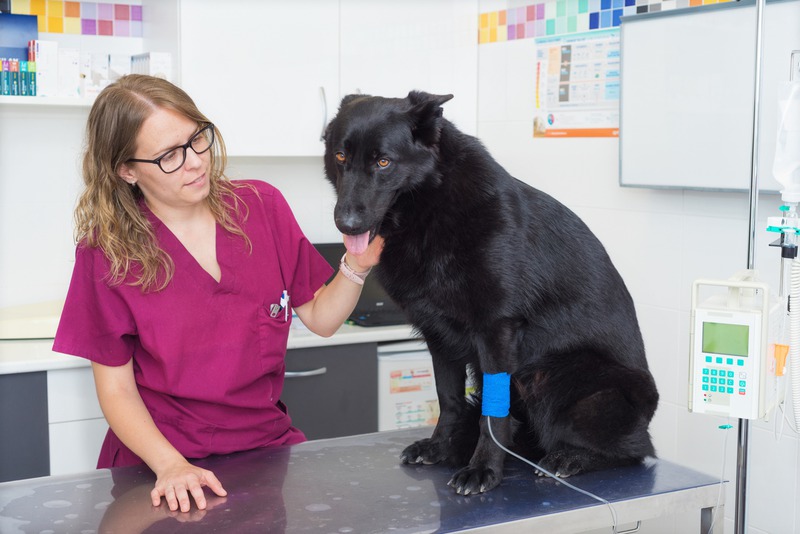
Why Can Pet Allergies Turn Fatal If Ignored?
August 22, 2024We’re a nation of animal lovers, with furry friends often considered part of our families. Yet, for some people, this bond comes with a cost—allergies. Pet allergies are generally seen as a sneeze here and an itchy eye there, but they’re not always such small fry. Ignoring the sniffles can lead to serious health complications. This might sound surprising, but it’s true. Let’s break down why these allergies can become life-threatening and how understanding them better can keep both you and your pets healthy and happy.
How Can Ignoring Pet Allergies Be Life-Threatening?
At first glance, pet allergies seem like nothing more than a minor inconvenience. However, they can progress and pose a real threat to health. Here’s how:
-
Respiratory Issues: Continuous exposure to pet dander can exacerbate existing conditions like asthma, possibly leading to severe asthma attacks.
-
Anaphylactic Reactions: Though rare, some individuals may experience extreme allergic reactions to animals, which can rapidly develop into anaphylaxis, a potentially fatal condition.
-
Secondary Infections: The symptoms of pet allergies, such as scratching and rubbing, can lead to secondary skin infections.
Understanding Pet Allergies
Pet allergies occur when our immune system overreacts to proteins in an animal’s skin cells, urine, or saliva. It’s not just about the fur—hairless breeds can also cause allergies. Symptoms can include sneezing, runny or stuffy nose, itchy eyes, and sometimes more severe reactions. It’s crucial to recognize these signs early and take action.
Identifying the Allergen
It’s essential to pinpoint exactly what’s triggering your allergies. In many cases, you might attribute your symptoms to pet fur, when in reality, it’s the dander, which is tiny particles of skin shed by cats, dogs, and other animals with fur or feathers. Other potential allergens are proteins in the pet’s saliva, urine, and even the dust and pollen that can collect in their fur. Tests and analyses can help identify the specific allergen involved.
Preventive Measures to Take At Home
Once you know what triggers your allergies, you can take steps to minimize exposure. Let’s walk through a few practical tips:
-
Keep your pet out of your bedroom: Your bedroom should be a haven free of allergens. By keeping pets out, you can ensure at least eight hours of reduced exposure to allergens each day.
-
Regular Cleaning: Frequent vacuuming with a HEPA filter and dusting can help keep allergens at bay. Don’t forget to wash your pet’s bedding, too.
-
Bathe Your Pet: Bathing can reduce the amount of allergen-related protein on your pet’s fur. However, it’s essential to consult with a vet to ensure a safe and appropriate bathing routine.
Medical Interventions
If you’ve taken the above steps and continue to struggle with pet allergies, it may be time to consider medical intervention. Options vary from over-the-counter antihistamines to prescription medications. For long-term relief, you may want to explore allergy shots (immunotherapy), which can help your body build tolerance to pet allergens over time.
Professional Help
If your pet is suffering from skin issues, and possibly allergies, finding specialized assistance is vital. A cat and dog dermatologist is equipped with the knowledge and tools to diagnose and treat various dermatological conditions, including those caused by allergies. By consulting such a specialist, you ensure that you’re addressing any skin-related problems your pet might be facing, which, in turn, helps you manage your allergies more effectively.
When Should You Seek Emergency Care?
Dealing with a severe allergic reaction requires immediate medical attention. If you or someone you know experiences difficulty breathing, swelling of the face or throat, or a sudden drop in blood pressure after contact with a pet, it’s time to visit an emergency room. If you’re in the area, an emergency vet in Dartmouth can provide prompt and comprehensive care to help manage the situation and offer relief.
Talking to Other Specialist
Understanding the gravity of pet allergies can also benefit from the perspectives of veterinary surgeons. If you’re interested in the medical intricacies and how allergies affect both pets and people, you might visit this vet surgeon further to understand the connection between human and pet allergies. Their insights can also guide you on how to coexist safely and healthily with your pet if you have allergies.
Alternatives for Allergy Sufferers
If pet allergies are a significant concern, there are a few pet alternatives to consider:
-
Hypoallergenic Breeds: Some breeds are less likely to trigger allergic reactions. Speak with a breeder or allergist to find the best fit for your situation.
-
Reptiles or Fish: These pets do not have fur or dander and can be excellent companions for those with severe allergies.
Final Thoughts
Pet allergies can be fatal, though it’s rare. Most people won’t face life-threatening situations, but risks shouldn’t be ignored. Managing allergies, seeking professional advice, and making home adjustments help maintain a safe environment with pets. The joy pets bring makes it worthwhile. Stay informed and prepared, and ensure safety for both you and your furry friends.




